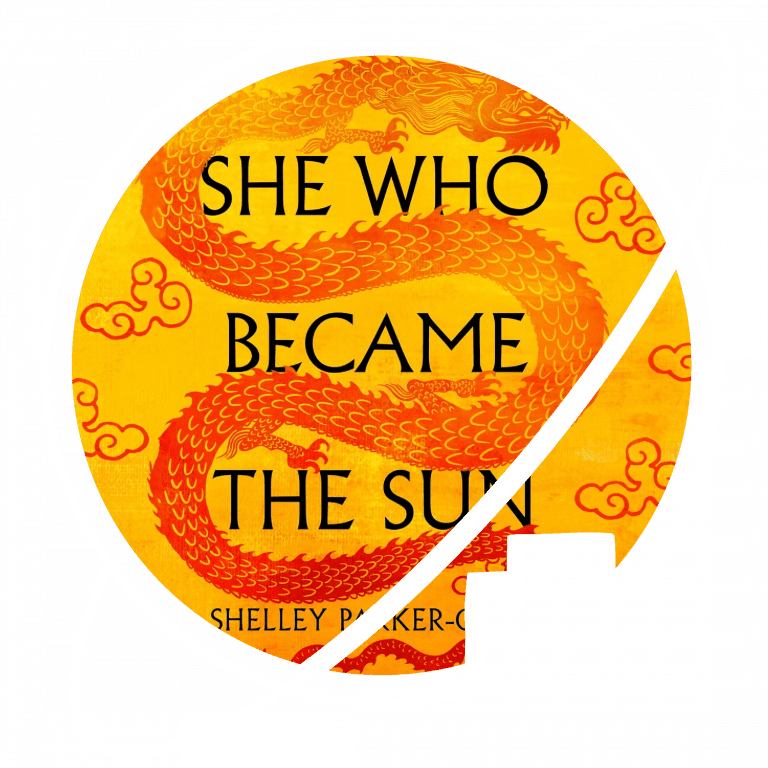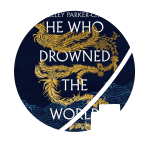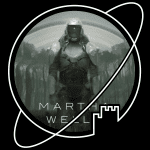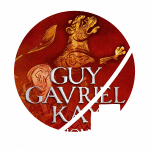- Book written by Shelley Parker-Chan
- Published 20 July 2021
- Part one in the Radiant Emperor Duology
She Who Became the Sun is an alternate history/historical fantasy novel set in Mongol-conquered China, in the waning days of the Yuan dynasty. It follows the exploits characters in different positions and on different sides of the struggle for power going on between the ethnically Mongol ruling elite and an ethnically Han uprising: a peasant girl trying to take up her brother’s fated path to greatness and an enslaved general struggling to reconcile the love for his master with his history of oppression.


Listened to the audiobook with Natalie Naudus – an amazing narrator, who probably made the experience better than reading would have been because of her accurate pronunciation of Chinese names. Would definitely recommend listening!
I googled She Who Became the Sun because of its Hugo nomination, and the moment I read the blurb, I realised it had the potential to be amazing fo me. And boy, it delivered!
The book’s setting alone was enough to pique my interests, because fantasy novels set outside a semi-historical Europe seem to be a relatively recent development, and alternate history/historical fantasy is something I’ve wanted to read more of lately. And She Who Became the Sun is a masterclass on how to do both! I believe this book represents what 21st century historical fantasy ought to look like: whilst set in a non-generic medieval setting very much connected to the real world, it delves into themes such as discrimination, belonging, sexuality and gender in (what I believe to be) a historically plausible manner. I’m not one to accuse authors of ‘woke-ism’, but I do sometimes feel like the societal themes of today are lathered thickly on top of an ostensibly historical story in a way that makes little sense in-universe or even breaks suspension of disbelief. Parker-Chan shows us how it is possible to write a story in which these themes are apparently effortlessly woven into the fabric of the past. In an unforced manner, she makes us realise that some of GenZ’s struggles go back to medieval China. I cannot praise her for this achievement enough!
A lot happens in this book. But while there are a lot of new elements to wrap your head around, at the same time it follows a comfortable, familiar, and satisfying trajectory: our main character Zhu, for example, fights her way from destitute girl to powerful woman through intelligence and sheer force of will. I liked Zhu and Ouyang as main characters: Zhu’s drive keeps the plot moving forward, while Ouyangs reflection (and his opposite point of view) provide the perfect counterpoints. Switching back and forth between them was always a pleasure and kept to pace from being overwhelming.
Despite everything that happens, She Who Became the Sun is clearly the first part in a series: neither Zhu’s nor Ouyang’s story are finished by the end. But the book’s arc is concluded and while I am going to pick up part two the moment it is released, the ending is satisfying enough that I don’t think it is necessary to wait for the full story to be released first.
Long story short: She Who Became the Sun might be the best book I’ve read all year (though I’ve just started Leviathan Wakes, which might just compete for that title…). To be honest, I am convinced She Who Became the Sun should have taken the Hugo ahead of A Desolation Called Peace – which I also loved. The combination of novelty, comfort, themes, and historical groundedness was absolutely superb. Luckily, Parker-Chan bagged the well-deserved Hugo for best new writer, so at least she left a winner. She Who Became the Sun is borderline Collection material – and I’m not convinced I’m not going to submit the entire series at some point anyway. The only reason I didn’t rate this book five stars is that the I felt that perhaps sometimes, Zhu’s successes came to her just a bit too easily – but that is a minor nit pick in what is overall an amazing book.








